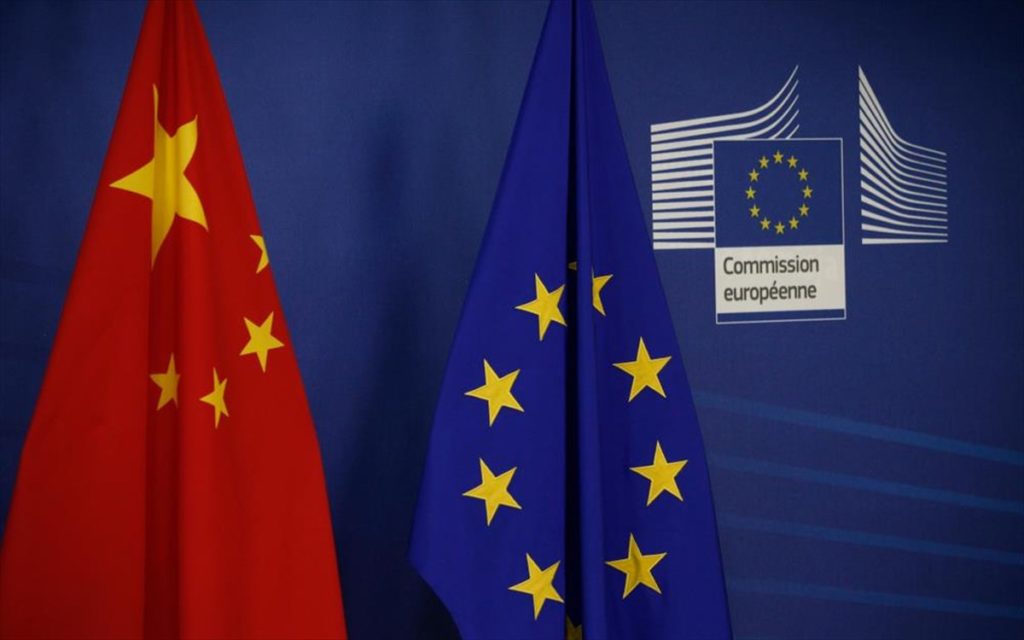The EU has recently made several statements about its relations with China. Josep Borrell, High Representative of the European Union (EU) for Foreign Affairs and Security Policy, published an article on several European newspapers accusing China of trying to exploit differences of opinions among the 27 EU member states for its own ends, divide and rule the Europe and seek its own version of multilateralism.
The worry about being divided and ruled by a foreign power is like a nightmare haunting the EU. As Borrell said, “Developing a joint approach to superpowers is never easy for the EU.” Indeed, the EU has never eased its vigilance against Russia and the US, especially as Washington has blatantly divided it into the old and the new Europe without hiding its intention of making sure that there would not be a continent sharing a common international telephone area code. The EU has been used to Washington’s secessionist tricks, so its unease about Beijing’s growing presence in recent years is but a natural reaction.
But the EU must recognize that not every exotic presence is a threat to European unity. China’s rise is a peaceful process not backed by armed forces, and this development model is unique for it doesn’t rely on war. Instead of accusing China of proposing the “17+1” initiative that is misunderstood as Beijing’s attempt to divide Europe, the EU could try to take part in the initiative and coordinate with all parties to see what comes next. At the same time, the current situation seems to indicate that Brussels needs to be more vigilant against secessionist forces from within.
Borrell mentioned that both China and the EU are devoted to promoting multilateralism, but our approaches on multilateralism differ. He considered that China practices a selective multilateralism with itself at the center, but didn’t elaborate on what EU’s multilateralism means. He emphasized Brussels’ divergences with Beijing over human rights, cyber security, and other subjects while also showing disapproval to much of Washington’s performance.
It’s clear that the disappointment with Washington, anxiety about Beijing, and unease about Moscow have put Brussels in a predicament of self-positioning.
Logically speaking, multilateralism should be essentially mutual and reciprocal. No party should imagine that it could unilaterally draw a line and delimit other parties’ territory on that basis - which is self-centered hegemony and caprice. The EU shouldn’t hold such a stance, nor should it keep itself in a state of disappointment, anxiety, and unease.
As the COVID-19 pandemic is ravaging the world, Washington seems to be bent on doing two things only - not focusing on the epidemic prevention and control at home, and fabricating and peddling its stigmatization of the Chinese, which intends to hold China accountable for the COVID-19 pandemic and demand compensation from China for losses incurred from the coronavirus pandemic. The hysterical remarks by certain American politicians remind us of how the Europeans brutally and crazily blamed the Jews for the Black Plague in the Middle Ages, which was a historic crime against humanity under the pretext of religion.
The severer the epidemic becomes, the more obsessed some Americans are with using the accountability theory, and to impose pressure on the EU in an attempt to jointly oppose China. Some people have bought Washington’s story and followed its lead. Still, the mainstream circle in Europe, knowing very well that absurd and cruel Medieval period in European history, sees through its ulterior motives.
While Washington blamed the WHO and cut off US funding to the WHO, Europe expressed its resolute support for the health organization and condemned Washington for its actions. Reasonable thinking remains the dominant ingredient of China-Europe relations. We’ve also noticed that Brussels is urging the international community to investigate the pandemic. A scientific and comprehensive investigation, which will help the countries respond to other possible future pandemics in more timely and effective manners, is in the interest of the whole mankind.
At the virtual 73rd World Health Assembly on May 18, Dr. Tedros Adhanom Ghebreyesus, Director-General of the World Health Organization, said, “We will only halt COVID-19 through solidarity.” He also pledged to initiate a WHO-led, independent and comprehensive evaluation at the earliest appropriate moment to review experience gained and lessons learned and to make recommendations to improve national and global pandemic preparedness and response.
It would be wise for European politicians to learn more facts about China rather than rely on the intelligence reports that always highlight threats or potential threats from the Asian country, especially when they come from Washington.
It would also be beneficial for experts in EU think tanks to have a more comprehensive understanding of China and its relation with Europe rather than indulge in scenario deduction and use the “surprising results” to startle politicians and the public.
Furthermore, China and Europe could hold more solid and systematic exchanges of ideas and information as their understanding of each other lags behind bilateral demands for economic and social interactions and is barely able to offer any constructive advice on top-level decision making.
While the US is evading its global responsibilities in big strides, China and Europe are shouldering greater responsibilities for humankind’s survival and well-being. We’d better work together more closely, deeply and comprehensively, hold up high the banner of sustainable and human-centered multilateralism, and offer our shared aspiration for lasting peace a historic opportunity to become a reality.


